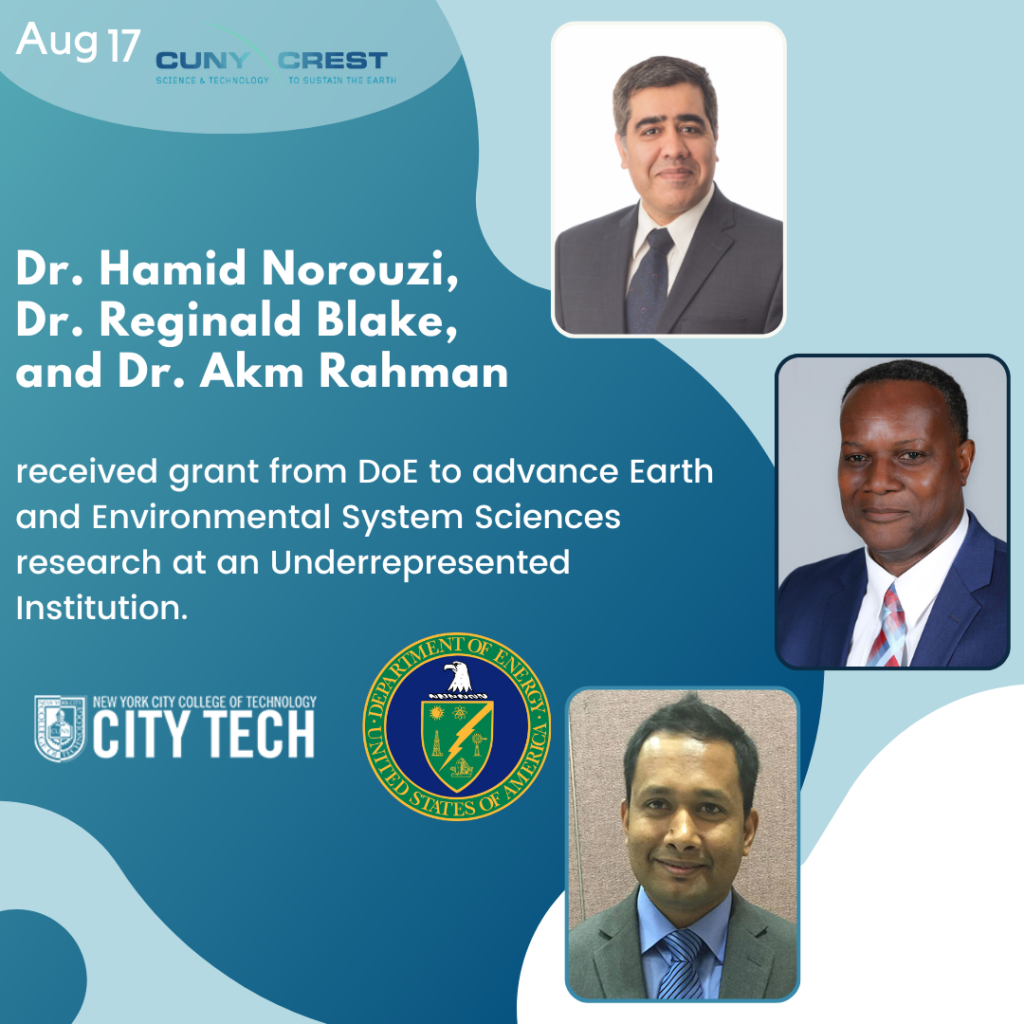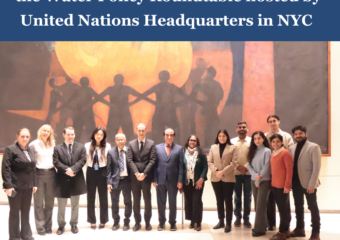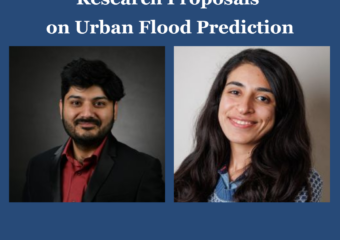Dr. Hamid Norouzi, Dr. Reginald Blake, and Dr. Akm Rahman received grant from DoE to advance Earth and Environmental System Sciences research at an Underrepresented Institution.
Dr. Hamid Norouzi, Dr. Reginald Blake, and Dr. Akm Rahman received grant from DoE to advance Earth and Environmental System Sciences research at an Underrepresented Institution.
Dr. Hamid Norouzi, Professor in the Department of Construction Management and Civil Engineering and Director of Undergraduate Research and Dr. Reginald Blake, Associate Provost and Dean of Curriculum, at the New York City College of Technology were recently awarded a grant for the project, Sustainable DoE Partnerships to Advance Fundamental Research in Earth and Environmental System Sciences at an Underrepresented Institution.
Dr. Norouzi and Dr. Blake are well known in the CUNY CREST Institute community for being among our esteemed scientists and mentors to our students. Dr. Norouzi will serve as the lead PI. From the New York City College of Technology, Associate Provost Dr. Reginald Blake, and Dr. Akm Rahman, Professor in the Department of Mechanical Engineering Technology, will serve as Co-PIs to the project.
Project Abstract:
Major cities and their constituent communities are at the forefront of both vulnerability and the need for adaptation to climate change impacts. As the urban population is anticipated to increase from 55% to 80% by 2050, these impacts are expected to be exacerbated and compounded especially for cities that are near coastlines. As climate change shifts both the means and the extremes of the urban-coastal micro-climate, there is abundant evidence that global cities such as New York are already being adversely impacted by climate change, with more serious consequences in the decades to come. For instance, fatalities from heat waves in urban regions exceed any other natural disasters in the United States. The need for better understanding of the urban-coastal microclimate at the neighborhood scale and its response to climate change impacts/stimuli for local communities is becoming more and more critical for urban-dwellers, stakeholders, and policy makers. For New York City, climate variability and change present both complex challenges and unique opportunities that necessitate immediate action. It is, therefore, imperative that equitable, resilient, flexible adaptation pathways and strategies be developed and implemented to reduce the climate change risks and vulnerabilities to communities within the five boroughs of New York City.
To overcome the urban climate challenges and to appropriate the opportunities they simultaneously afford, urban, academic institutions of higher learning (particularly the ones that serve minority students) need help. They primarily need support to develop partnerships with DOE projects at national laboratories; they need support to develop plans to enhance capabilities for future research and thereby leverage DOE user facilities, and they need support to participate in the outreach and training initiatives that are being planned by DOE’s climate, Earth, and environmental sciences programs and facilities. This proposal, therefore, seeks funding from DOE’s BER program to advance fundamental research to ameliorate the challenges posed by climate change in an ultra-urban center like New York City.




